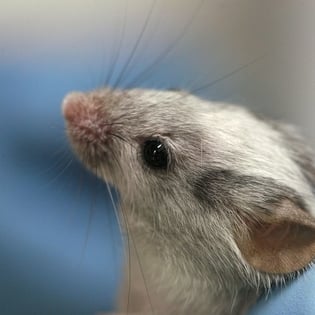If DEET is Neurotoxic and Linked to Brain Cell Death…
Why are we spraying it on our kids?
DEET is seen as one of the most effective products for repelling insects, but the concern is that it can be neurotoxic…
Source: Dermatology Times.
Sandy Tsao, M.D.
Assistant Professor Harvard Medical School
You’re not too keen on having your kids breathing in DEET or absorbing it through their skin…
Kid’s are going to be exposed to chemicals… but you’d prefer to minimize it and not spray chemicals directly on them.
If it was just you, you wouldn’t have as big of an issue… but since it’s your kids…

Keeping kids mosquito free in the summer usually involves DEET.
We think that DEET and other chemical-based repellents should be used only if other, safer methods don’t work for you…
Source: Washington Post.
Source: Washington Post.
Urvashi Rangan
Director of Consumer Reports’ Food Safety and Sustainability Center
DEET was originally tested as a pesticide on farm fields
And entered military use in 1946.

DEET was originally used as an agricultural pesticide. Photo by Charles Walker.
Most cases of seizures, slurred speech, coma and other serious side effects have occurred in people who ingested DEET or applied it for three or more days in a row…
Source: Washington Post.
Washington Post
Skin absorbs DEET and it proceeds to the blood stream and other internal organs.
You need to be very careful when using DEET on your kids. Different concentrations are linked to seizures and other medical emergencies.
Duke University… studies on rats, found that frequent prolonged DEET exposure led to diffuse brain cell death and behavioral changes, and concluded that humans should stay away from products containing it…
Source: Scientific American.
Scientific American
Lab rodents experienced brain cell death after prolonged exposure to DEET. Photo by Rama.
Canada doesn’t even allow DEET…
Repellents with over 30% concentration.
Canada’s health department recommends a maximum of 10% DEET for children under 12 years old.
They also strongly advise against daily usage for more than a month…

Canada’s Health Department considers DEET a health risk – especially for children. Photo by Abdallahh.
If you’re still going to use DEET
Make sure you follow the directions and don’t:
- Apply DEET repeatedly
- Apply to broken skin
- Apply under clothing
- Use on children under 2 years of age
- Forget to wash it off after returning inside
- Apply to children’s hands – they can spread it to their mouth and eyes
Bug bites or chemicals
You’d like to not have to decide between having your kids bit by mosquitoes or applying harmful chemicals to them…
One of the best ways to reduce the use of repellents is reduce the number of mosquitoes in your yard.
Mosquito repellent will never be completely effective and for that reason, it is imperative to put other roadblocks between the mosquito and you…
Source: Dermatology Times.
Joel Schlessinger, M.D.
Dermatologist






